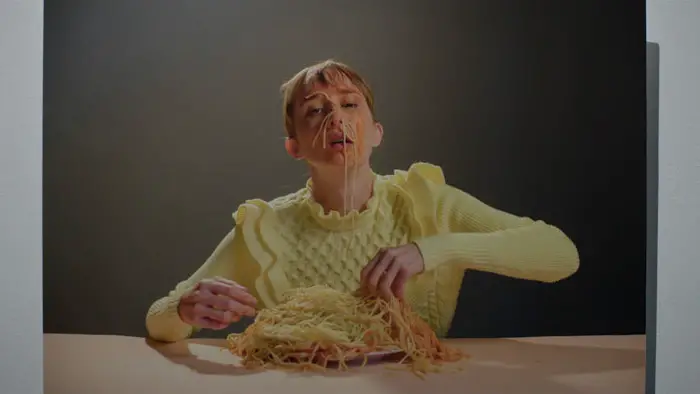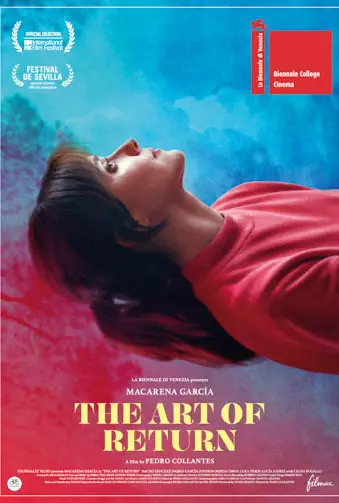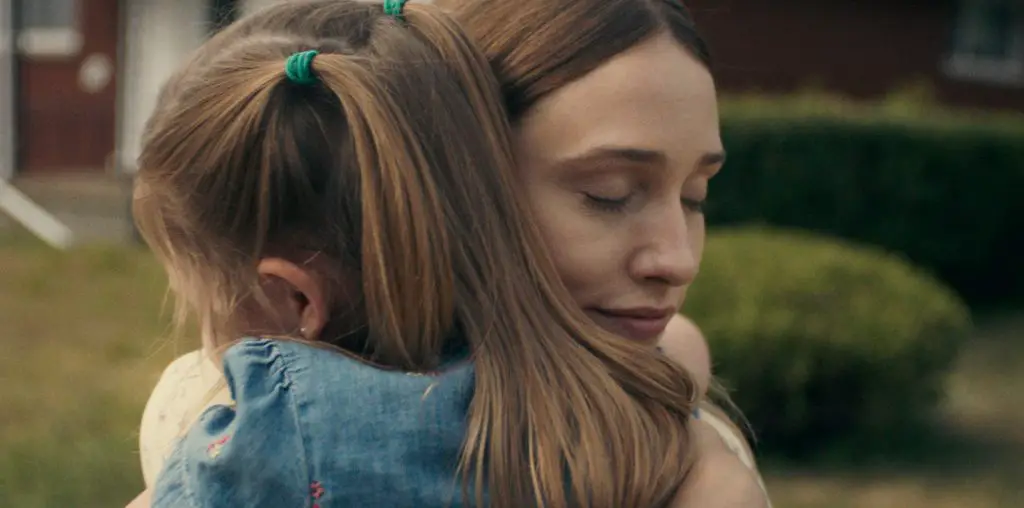
As Noémi visits family and friends, we uncover more fragments about her life. A conversation with her ill grandfather (Celso Bugallo) reveals her rather unsuccessful acting career in New York. Noémi then visits her younger sister Laura (Mireia Oriol). There is a palpable disconnect between the sisters. Laura chastises Noémi for not answering all the texts and messages she sent. Noémi’s interaction with Radu (Luca Peros), a Romanian driver, begins in her typical disconnected manner but quickly mutates into one of the most sensitive and humane scenes I have seen in a long time. Could this interaction have led to Noémi’s re-connection with herself, with Madrid, with humanity? The question is rich with possibility.
The performances in The Art of Return are splendid. Macarena García brilliantly captures every facet of her character’s personality — detached, dreamy, sensitive, angry, and conflicted. Every supporting actor enriches their scene. Of special note is Mireia Oriol’s supporting performance as Laura. She and García make you feel the love, and the latent hurt, in their relationship. You may have a hard time finding a more believable on-screen depiction of sisterhood. Major kudos must also be given to Collantes as director and co-writer. Collantes has pulled off a film that mixes a kind of breezy flow — scenes involving characters moving about the world and talking evoke Rohmer and Linklater’s films — with a profound meditation on identity. That mix is certainly not an easy trick to pull off.

“…García brilliantly captures every facet of her character’s personality…”
For anyone who says that The Art of Return has no plot, that “nothing happens,” I say, you missed the point. You have been conditioned to play a paint-by-numbers game of “follow the story beats.” Collantes has given us a character whose being is caught in time, by uncertainties, by life’s push-and-pulls. We start piecing together who Noémi is via her interactions with others. When we think we have understood her, a new piece is added. What we do know for sure is that she is a bit unanchored in life. The more Madrid, her family, and friends try to anchor her, sometimes in terms of relationships or her career, and on occasion, even in terms of technology, the more we realize how mercurial and fleeting all of it is.
Throughout The Art of Return, I was reminded of Thom Yorke’s lyrics of isolation and disconnect from others in the song Subterranean Homesick Alien. At one point, Noémi notes how after all these years, they still have not fixed the sidewalks in the neighborhood. This little moment highlights the stable quality in the place we call home, for better or worse. However, she seems to have forgotten the smell of Madrid’s air. The question lingers if she will ever recover the distinctive scent of home and herself.

"…we realize how mercurial and fleeting all of it is."



Great review. Keep them coming.